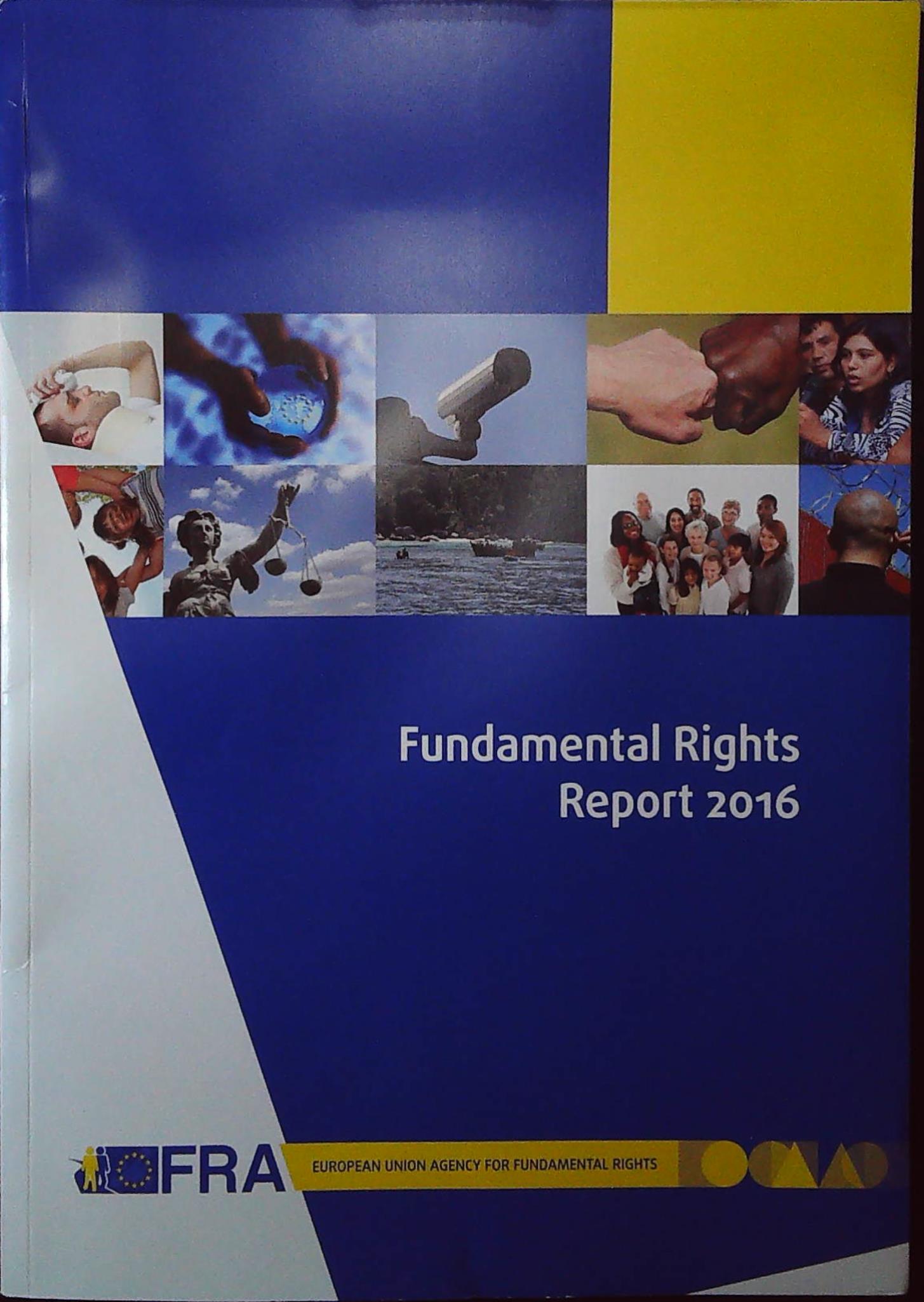Foreword
The Fundamental Rights Report 2016 summarises and analyses major developments, and gives the opinions of FRA, in
the fundamental rights field in the European Union between January and December 2015. Noting both progress made
and persisting obstacles, it provides insights into the main issues shaping fundamental rights debates across the EU.
The report begins with a Focus section. This year, it takes a closer look at asylum and migration issues in the EU,
exploring: the risks refugees and migrants face to reach safety; challenges with regard to non-refoulement and
the prohibition of collective expulsion; developments and possible solutions in the field of asylum; and the issue of
returns.
In an important milestone, the United Nations Committee on the Rights of Persons with Disabilities in 2015 completed
its first review of the EU’s implementation of the Convention on the Rights of Persons with Disabilities (CRPD) –
the first time an international body examined how the EU is fulfilling its international human rights obligations. In
addition, FRA took over the role of chair and secretariat of the EU Framework for the CRPD. To mark these notable
events, FRA reports on developments in CRPD implementation in a separate chapter – which will become a regular
feature of its annual Fundamental Rights Reports.
The remaining chapters discuss the EU Charter of Fundamental Rights and its use by Member States; equality and
non-discrimination; racism, xenophobia and related intolerance; Roma integration; information society, privacy and
data protection; rights of the child; and access to justice, including the rights of victims of crime. To avoid duplication
with the Focus section, this year’s report does not dedicate a thematic chapter to asylum, borders, migration, and
integration issues. As in previous reports, the chapters reflect the thematic areas of the agency’s Multi-annual
Framework – a list of priority areas approved by the Council of the European Union every five years.
The last section of each chapter concludes with FRA opinions that outline evidence-based advice anchored in the
facts and research presented in the report. These opinions provide meaningful, effective and relevant assistance and
expertise to the main actors in the European Union.
We would like to thank the FRA Management Board for its diligent oversight of the Fundamental Rights Report 2016
from draft stage through publication, as well as the FRA Scientific Committee for its invaluable advice and expert
support. Such guidance helps guarantee that this important report is scientifically sound, robust, and well-founded.
Special thanks go to the National Liaison Officers for their comments, which bolster the accuracy of EU Member
State information. We are also grateful to the various institutions and mechanisms – such as those established by the
Council of Europe – that consistently serve as valuable sources of information for this report.
Vienna : European Union Agency for Fundamental Rights, 2016Engelska 199 s.






Powered by AIS